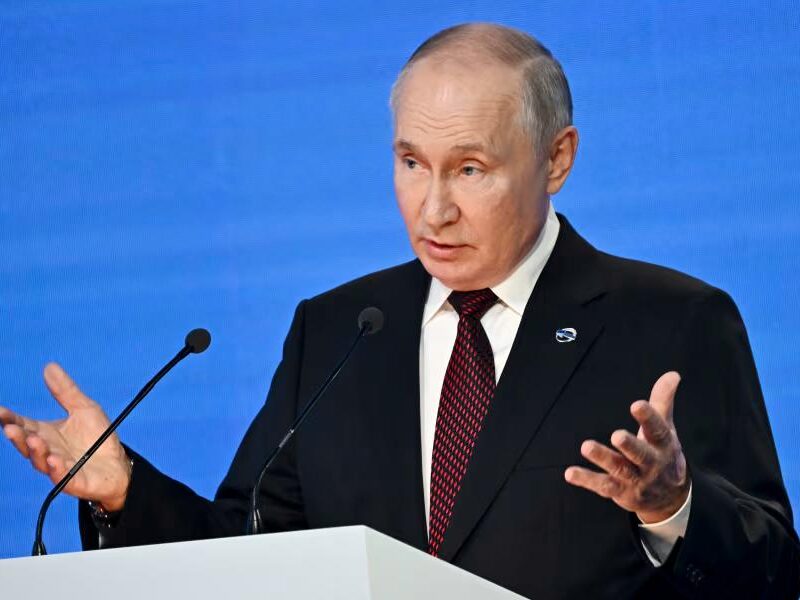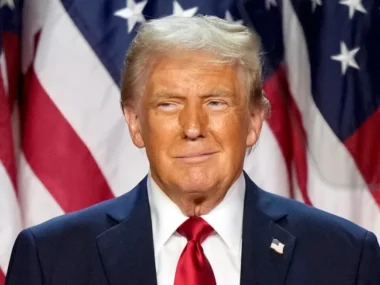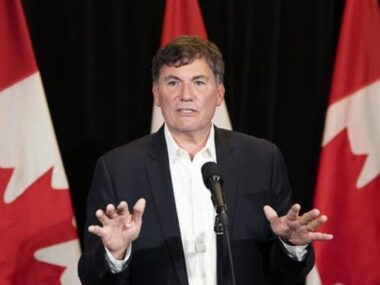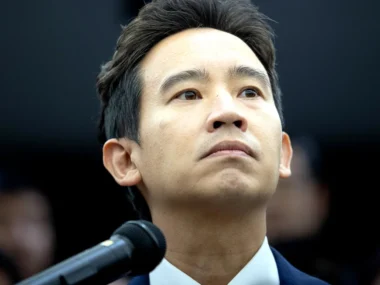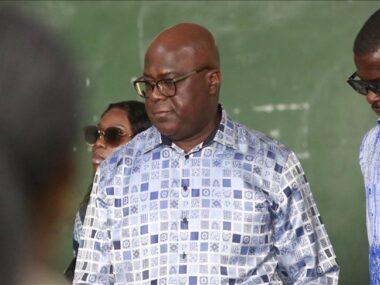President Vladimir Putin announced on Thursday that Russia had successfully tested an experimental nuclear-powered cruise missile. He also issued a warning that the country’s parliament can decide to rescind the ratification of a treaty that forbids nuclear testing.
Putin said that Russia has nearly finished developing the Burevestnik cruise missile and the Sarmat heavy intercontinental ballistic missile and will work on bringing them into production in a speech to a gathering of experts in foreign affairs.
He stated simply, “We conducted the last successful test of the Burevestnik nuclear-powered global-range cruise missile. His announcement marked the initial report of the Burevestnik, or “Storm Petrel,” test being successful. In 2018, Putin made the initial reference of it.
The Burevestnik, code-named Skyfall by NATO, is a little-known weapon about which many Western specialists have expressed skepticism since a nuclear engine may be wildly unstable.
It is thought to be capable of carrying either a nuclear or a conventional payload, and thanks to nuclear propulsion, it may be able to stay in the air for a lot longer than other missiles and travel a lot farther.
In his 2018 State of the Nation Address, Putin first acknowledged that Russia was developing the weapon. At the time, he asserted that it would have an infinite range and be able to circumnavigate the globe without being detected by missile defense systems.
He stated simply, “We conducted the last successful test of the Burevestnik nuclear-powered global-range cruise missile. His announcement marked the initial report of the Burevestnik, or “Storm Petrel,” test being successful. In 2018, Putin made the initial reference of it.
The Burevestnik, code-named Skyfall by NATO, is a little-known weapon about which many Western specialists have expressed skepticism since a nuclear engine may be wildly unstable.
It is thought to be capable of carrying either a nuclear or a conventional payload, and thanks to nuclear propulsion, it may be able to stay in the air for a lot longer than other missiles and travel a lot farther.
In his 2018 State of the Nation Address, Putin first acknowledged that Russia was developing the weapon. At the time, he asserted that it would have an infinite range and be able to circumnavigate the globe without being detected by missile defense systems.
He stated, “Theoretically, we may revoke the ratification.”
Putin’s statement comes amid widespread worries that Russia may decide to begin nuclear tests in an effort to deter the West from continuing to provide military assistance to Ukraine after the Kremlin sent soldiers there. Numerous Russian hawks have advocated for the continuation of the tests.
Although some experts have discussed the need for nuclear tests, Putin claimed that he hasn’t yet formed a view on the subject.
I’m not yet prepared to say whether or not we need to undertake testing, he said.
The Russian defense doctrine foresees a nuclear reaction to an atomic attack or even a conventional weapon attack that “threatens the very existence of the Russian state.” Some Russian specialists have urged the Kremlin to change the warnings’ ambiguous language in order to have the West take them more seriously.
One of them, Sergei Karaganov, a renowned Russian foreign policy expert who counsels Putin’s Security Council, has argued that if the West continues to support Ukraine, Moscow should escalate its nuclear threats to “break the will of the West” or even launch a limited nuclear attack on NATO allies in Europe.
Putin stated that he doesn’t see any justification for such adjustments in response to Karaganov’s inquiry on prospective modifications to the Russian nuclear doctrine on Wednesday.
There is no circumstance in which anything may endanger Russian statehood and the Russian state’s existence, he insisted. “I don’t believe anyone with a clear head and sound memory could have thought of using nuclear weapons against Russia.”

